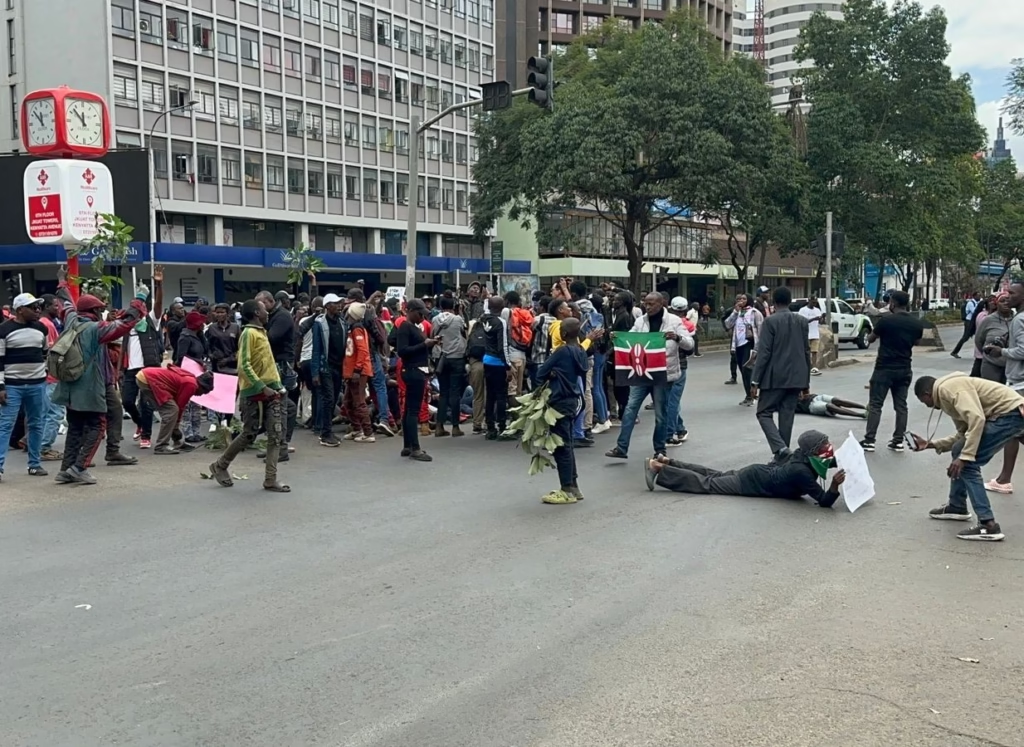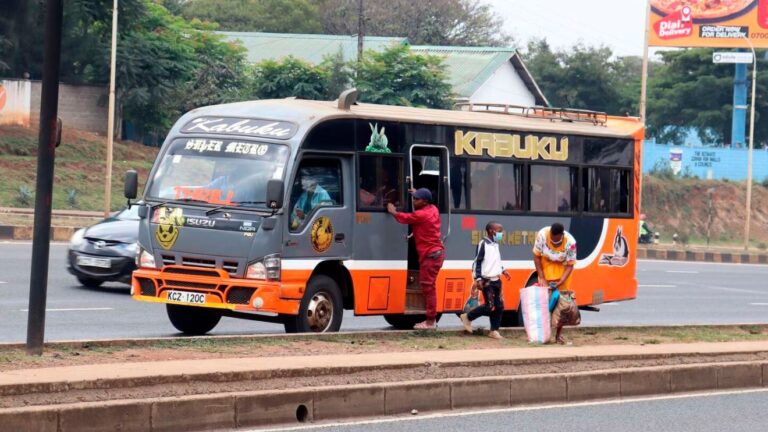
Nairobi, June 17, 2025 – Today, tragedy struck downtown Nairobi during protests demanding justice for blogger and teacher Albert Ojwang, who died in police custody last week. An unarmed hawker selling masks to demonstrators was shot dead outside Imenti House, according to witnesses and live footage from the scene.
Around midday, as protesters gathered near Imenti House in Nairobi’s central business district, police officers confronted a hawker. He was reportedly offering face masks to protesters when two armed officers approached. One officer then fired a single shot at close range, killing the man instantly. A distressed onlooker captured the moment on video, shouting, “Damn, he has shot him,” as the victim collapsed and the officers walked away calmly.
The victim was described as entirely unarmed and non-threatening. “This man was just selling water [masks, actually], he stood there and was shot dead at close range,” a tearful woman shouted in distress. Another witness, Brian Mwangi, told reporters, “He was not even protesting. He was simply going about his hustle, selling masks. How do you shoot someone like that?”.
These protests erupted after Albert Ojwang, a 31‑year‑old teacher and blogger arrested over defamation allegations, died in police detention on June 8. Ojwang’s death sparked outrage across Nairobi and nationally, triggering rallies under the hashtag #JusticeForOjwang.
What began as peaceful demonstrations deteriorated into clashes with riot police. Protesters torched at least two motorcycles, accusing the riders(suspected to be hired thugs) of attacking demonstrators with apparent police backing. Journalists covering the unrest also reported harassment and theft, with little intervention from law enforcement.
Kenya’s police have acknowledged the incident and announced an investigation, though they have yet to name the officer involved. Meanwhile, civil society and human rights groups are calling for an independent inquiry and accountability for the hawker’s death.
This shooting has intensified public anger toward police tactics, reinforcing perceptions of systemic brutality. It also highlights the perilous intersection of economic survival and civic expression. Street traders already vulnerable and frequently harassed are now at even greater risk when protests erupt.
The incident further undermines public trust in authorities. Demonstrators feel there is no safety from both hired aggression and sanctioned state violence. As the #JusticeForOjwang movement gains momentum, such crossroads could define Kenya’s commitment to human rights and police reform.
Pressure is mounting on the Independent Policing Oversight Authority and the government to ensure a transparent investigation. Demonstrators plan to continue gathering, demanding justice for both Ojwang and the slain hawker. Legal advocates and civil society organizations are mobilizing to support victims’ families and monitor the official proceedings.
